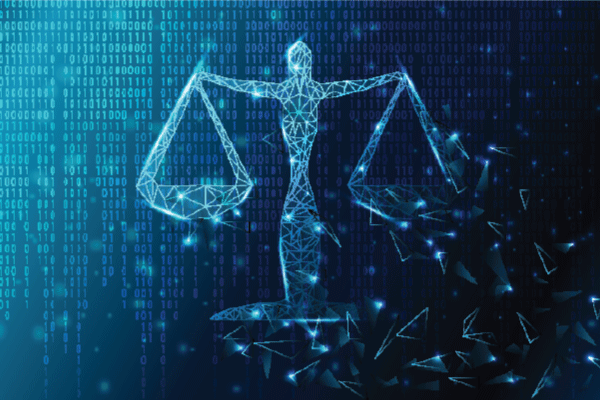NORMAN – Following a recent rash of censorship actions against primarily conservative users of social media platforms – including the permanent banning of President Donald J. Trump from Twitter – state Sen. Rob Standridge, R-Norman, filed a bill Wednesday in the Oklahoma Senate calling for the punishment of Big Tech companies that engage in overt censorship.
In SB 383, Standridge writes that “social media websites” that deliberately “deletes or censors a social media website user’s political speech or religious speech” is subject to a fine of a “minimum of $75,000 per intentional deletion or censoring of the social media website user’s speech” as well as “actual damages,” “punitive damages if aggravating factors are present” and “other applicable forms of equitable relief.”
When Standridge spoke to Southwest Ledger about the bill, he said he authored it because he had been contacted by a number of constituents in recent days who claimed that their social-media groups on various platforms had been censored and group pages deleted.
“In my little district, if I am getting contacted by in excess of 100 people, that means throughout Oklahoma, thousands were likely being censored as well,” Standridge said.
The state senator said that from what he can tell, his constituents – and many others far beyond the boundaries of Senate District 15 – are victims of Big Tech’s “selective censorship.”
What he means is that the only people who have contacted him, concerned about censorship, are either on the right or center-right.
“I have not had a single person left of center in my district being censored,” Standridge said.
On the national scale, Standridge points to the current case of leftist rioter John Sullivan, of Utah, who was arrested by the FBI for his role in the riots that erupted in the U.S. Capitol in Washington on January 6. Sullivan, reports The Salt Lake Tribune, was charged with “civil disorder, being in a restricted area and disorderly conduct.” A lot of Sullivan’s actions were videotaped, and he was reportedly in the company of a CNN-affiliated videographer who allegedly cheered on Sullivan’s violent actions.
After seeing a videographer who has worked for CNN, NPR and other mainstream news outlets, seemingly untouched after being in the midst of the rioting and mayhem alongside alleged rioter John Sullivan, Standridge said he is sure his censored constituents are wondering why they are censored for what seems to be nothing more than having conservative opinions.
“If (social-media outlets) are going to censor, they need to do it equally,” he said.
Standridge, in a statement, added that SB 383 would not apply to calls for immediate acts of violence or posts that entice criminal conduct or were the result of an operational error. It would also exempt posts that came from an inauthentic source or involved false impersonation or involved minors bullying minors. The website would not be liable under the bill for an individual user’s censoring of the speech of another user.
Standridge continued: “We’ve seen what appears to be selective censoring of opinion on social media. The legislation clearly states violent or other unacceptable content can and should be censored and violators removed if necessary, but any censorship should be applied equally to all. I believe in free speech, and the protection of free political speech is vital to the preservation of our democracy.”
When Dr. James Finck, a professor of history at the University of Science and Arts of Oklahoma in Chickasha and a contributing columnist to Southwest Ledger, was asked about this, he replied,
“In a capitalist system if conservatives are unhappy with Facebook they should go elsewhere. But there is not anywhere to go, especially if that other site … is being blocked by Google. There must be some laws about the public good and fairness that can apply to social media.”
Continuing, Finck said, “What I wish we could all understand is that sites like Twitter and Facebook are entertainment sites. There is good information out there, but what has made social media what it is, is that everyone can share their opinion.”
Concluding his thoughts, Finck said, “Historically we have seen plenty of government censorship of newspapers. What I have not figured out yet is how that applies to this, but there has to be something there. As far as the new law, I support anything that stops censorship, but not sure if it’s constitutional.”
American law protects the websites and promotes free speech, as Constitutionally intended.
It is most clear in Section 230 of the Communications Decency Act of 1996, Section 230 reads, as highlighted by the Electronic Frontier Foundation: “No provider or user of an interactive computer service shall be treated as the publisher or speaker of any information provided by another information content provider”.
In other words, online intermediaries that host or republish speech are protected against a range of laws that might otherwise be used to hold them legally responsible for what others say and do. The protected intermediaries include not only regular Internet Service Providers (ISPs), but also a range of “interactive computer service providers,” including basically any online service that publishes third-party content. Though there are important exceptions for certain criminal and intellectual property-based claims, CDA 230 creates a broad protection that has allowed innovation and free speech online to flourish.”
So far, Sen. Standridge said the feedback on SB 383 has been positive; and relevant in light of current censorship actions against President Trump and many right or right-leaning voices.
“The overwhelming majority of people who have reached out to me have been supportive. I would say overwhelmingly positive,” Sen. Standridge said, noting one person in his district mistakenly thought he was writing the bill to censor free speech, which is not the goal of the bill.


